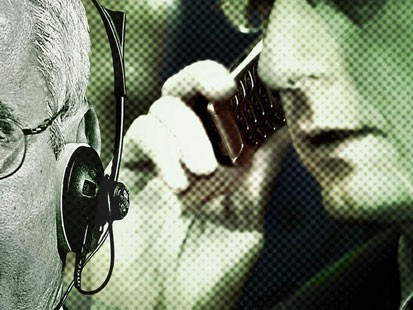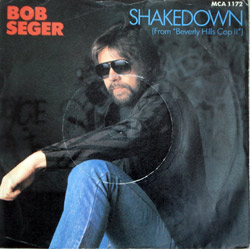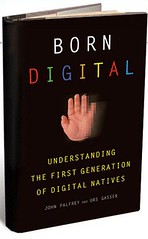Facebook has been at the center of a controversy involving its moderation policies and The Pirate Bay, a popular Bittorrent tracker that was found guilty of copyright infringement by a Swedish court last month. Since early April, Facebook has enforced a “site-wide” ban on links to The Pirate Bay – including those in private messages.
This practice may run afoul of federal wiretapping statutes that bar service providers from “intercepting” private messages, according to an article that appeared on Wired Threat Level last week. Wired quotes Kevin Bankston, a senior attorney for the Electronic Frontier Foundation, who explains that Facebook’s filtering raises “serious questions about whether Facebook is in compliance with federal wiretapping law.”
It’s important to draw a distinction between the traditional notion of “wiretapping” and Facebook’s “interception” of user messages, which doesn’t involve any human intervention. Regardless of how the courts may interpret ancient laws like the 1986 Electronic Communications Privacy Act, an automated computer system flagging and deleting certain strings from user messages simply isn’t comparable to a third party secretly listening in on a private phone conversation.
Besides, Facebook makes clear to its users from the get-go that their messages and postings are subject to a set of rules (which Facebook lays out in plain English). If Facebook believes a message or posting is against the rules, it can block or remove it. This is not an unreasonable rule; many online discussion forums have enforced similar policies since the Web’s early days. Such filtering is possible only if sites can “examine” messages to identify misconduct.
Continue reading →
A few months ago, Adam Thierer penned The Pragmatic (Internet) Optimist’s Creed in response to calls from “Internet pessimists” for increased regulation of the Internet on many fronts. Adam‘s recent 4-way debate with pessimists Larry Lessig and Jonathan Zittrain (as well as optimist Declan McCullagh) inspired me to pen the following cheeky homage to Lessig, the Father of Internet Pessimism, whose work has launched a thousand efforts to increase government control of the Internet in the name, ironically, of “freedom:”
Our Lessig, who art in Harvard,
Hallowed be thy blog.
Thy Free Culture come.
Thy Code be done,
In Washington as it is in thy Ivory Tower.
Give us this day our Net Neutrality.
And forgive us our trespasses against Internet Openness,
As we forgive those who question thy genius,
And lead us not into trusted systems of perfect control,
But deliver us from digital rights management and architectures of identity.
For thine is the wisdom,
and the clairvoyance, and the coolness,
for ever and ever.
Amen.
Lest I become the Salman Rushdie of pragmatic Internet optimists/regulatory-skeptics, let me emphasize that my techno-blasphemy is meant in good humor. But then, that’s probably what poor Rushdie said…
 Today California is holding a hearing on a bill that would require social networking websites to implement certain technologies and procedures to remove photo images upon notice from a user.
Today California is holding a hearing on a bill that would require social networking websites to implement certain technologies and procedures to remove photo images upon notice from a user.
AB 632 would force a broad range of websites to establish mechanisms to remove photos, videos, and even caricature or satiric images of its users. As we know, many if not most online sites are incorporating some sort of social networking functionality. This bill would therefore encompass a number of community events, news, sports, and travel sites in addition to more commonly regarded social networking sites.
Apparently the bill’s sponsor is upset that people can right click on photos, and save them to their computer or email to friends. In addition to takedown mechanisms, she wants websites to disclose to users that uploaded photos may be copied by persons who view the image.
As I detailed in a NetChoice letter, the takedown component is most troubling. It would force thousands of websites to redesign their sites to encompass a number of considerations:
- A specific image must be readily identifiable on a specific page—this is a non-trivial exercise. Photos may be buried deeply in a user’s album containing thousands of other images, and URLs of particular pages often change.
- Sites must determine whether an image is actually of the particular user requesting removal. Otherwise, users could request removal of a number of photos that bear their likeness, but do not actually include them, for a number of political, religious, or abusive reasons. Yet, even trained experts have difficulty identifying persons in photos, as images are affected by lighting, clothing, and changes in hair style or makeup.
- Removal must respect copyright law. Websites would face potential lawsuits from copyright owners if removing their copyrighted images negatively impacted them.
- How to deal with group photos, where the user is just one of many people in the image?
Continue reading →
On the problems with the newspaper industry, Michael Kinsley writes in the Washington Post:
You may love the morning ritual of the paper and coffee, as I do, but do you seriously think that this deserves a subsidy? Sorry, but people who have grown up around computers find reading the news on paper just as annoying as you find reading it on a screen. (All that ink on your hands and clothes.) If your concern is grander – that if we don’t save traditional newspapers we will lose information vital to democracy – you are saying that people should get this information whether or not they want it. That’s an unattractive argument: shoving information down people’s throats in the name of democracy.
I rarely say it, but the whole thing is worth reading.
Conversations about how the Internet can be used to increase the openness and accountability of government usually focuses on the Executive and Legislative branches of the Federal government. But on this week’s episode of Technology Policy Weekly, I hosted a discussion of the equally vital issue of public access to court records, joined by:
We discussed a wide range of issues, including:
- Why lay people should care—this is ultimately about reducing the legal profession’s monopoly over access to the courts!
- The philosophical reasons why better access to court records is important – little things like democracy, fairness, consistency, equality, the rule of law, etc.
- The copyrightability of legal records
- The history of the problem & what can be done about it
There are several ways to listen to the TLF Podcast. You can press play on the player below to listen right now, or download the MP3 file. You can also subscribe to the podcast by clicking on the button for your preferred service. And do us a favor, Digg this podcast!
[display_podcast]
One of the recurring internecine debates in the world of libertarian tech policy is over the philosophical status of copyright. On one side, you’ve got the camp that regards copyright as no different from any other kind of property right. People in this category tend to regard peer-to-peer file sharing as simple theft, and they often support draconian measures to ensure peoples’ “property rights” are protected, just as we would do if there were a rash of burglaries. On the other side, you have libertarians who regard copyright as a limited government monopoly that’s been granted for the pragmatic purpose of encouraging innovation. Folks in this camp tend not to think that copyright deserves the same level of strong enforcement we give to tangible property rights, and they tend to be more ambivalent about file sharing. You’ll often hear people in this latter camp talk about the need for copyright industries to find new business models that will be more resilient in the face of competition from peer-to-peer networks.
During his time at the Progress and Freedom Foundation, Jim DeLong was probably the most prolific advocate of the “copyright as property rights” theory. He hasn’t been as active in copyright debates the last couple of years, but he’s back with a long article about the fate of the newspaper industry. In it, he warns that unless newspapers can establish “a property rights–based monetization model, based on subscribers or control of advertising or both,” the newspaper industry will become trapped in a “‘tragedy of the commons’ situation” followed by “both individual and collective death spirals.”
Continue reading →
_Wikibook_header.png) One of the biggest problems with the present copyright system is transaction costs, inhibiting Coasian bargaining. If I want to make a movie and have to get permission from dozens of different copyright owners, I may just give up – especially if I can’t locate some of them. (For more on the specific problem of orphan works, see Tim Lee’s techknowledge article at Cato and some of the many discussions on TLF.)
One of the biggest problems with the present copyright system is transaction costs, inhibiting Coasian bargaining. If I want to make a movie and have to get permission from dozens of different copyright owners, I may just give up – especially if I can’t locate some of them. (For more on the specific problem of orphan works, see Tim Lee’s techknowledge article at Cato and some of the many discussions on TLF.)
What copyright regime would best deal with the problem of transaction costs, while ensuring sufficient incentives to create? Robert Merges argues that the fair use doctrine may hamper the formation of copyright clearing-houses (or “collective rights organizations”) and thus increase transaction costs because fair use results in somewhat uncertain rights. See Robert Merges, Contracting into Liability Rules, 84 Cal. L. Rev. 1293 (1996).
Would compulsory licensing, as is required of song covers, radio, and cable retransmission, solve this problem? But, as I have argued elsewhere, compulsory licensing is price-fixing… and makes particularly little sense in industries where the players are all well-known to each other (like cable rebroadcasting network TV).
I don’t know what the solution is, but I’d like to hear everyone’s proposals for a more efficient (and decently liberty-friendly) system. Registration? Some stringent form of equitable estoppel?
 On this episode of “Tech Policy Weekly,” we’re launching a new format called “Tech Book Corner” that will feature occasional conversations with the authors of important new books about technology policy and the other issues that we debate frequently at the Tech Liberation Front blog.
On this episode of “Tech Policy Weekly,” we’re launching a new format called “Tech Book Corner” that will feature occasional conversations with the authors of important new books about technology policy and the other issues that we debate frequently at the Tech Liberation Front blog.
On this debut episode of Book Corner, we are joined by John Palfrey, a professor of law at Harvard University and the co-director of the Berkman Center for Internet & Society at Harvard. Along with his Berkman Center colleague Urs Gasser, Prof. Palfrey has recently co-authored Born Digital: Understanding the First Generation of Digital Natives, which was published last summer by Basic Books and which you can find out more information about at www.borndigitalbook.com. [Incidentally, I reviewed Born Digital here last October and I also named it one of the most important technology policy books of 2008.]

In our discussion, Prof. Palfrey explains who exactly counts as a “digital native” and tells us why he decided to write a book about them. He discusses why he believes that there has been some overreaction by older generations to fears about this Digital Generation and he argues that we need “to separate what we need to worry about from what’s not so scary” and “what we ought to resist from what we ought to embrace.” He then outlines how we should think about these issues and concerns going forward, and he stresses the importance of “balancing caution with encouragement” as we do so. Finally, he then applies that framework to three specific issues: privacy, child safety, and copyright.
It’s an interesting conversation and you can begin listening to it immediately by downloading the MP3 file here or by just clicking the play button below!
[display_podcast]


 Today California is holding a hearing on a bill that would require social networking websites to implement certain technologies and procedures to remove photo images upon notice from a user.
Today California is holding a hearing on a bill that would require social networking websites to implement certain technologies and procedures to remove photo images upon notice from a user._Wikibook_header.png) One of the biggest problems with the present copyright system is transaction costs, inhibiting
One of the biggest problems with the present copyright system is transaction costs, inhibiting  On this episode of “Tech Policy Weekly,” we’re launching a new format called “Tech Book Corner” that will feature occasional conversations with the authors of important new books about technology policy and the other issues that we debate frequently at the Tech Liberation Front blog.
On this episode of “Tech Policy Weekly,” we’re launching a new format called “Tech Book Corner” that will feature occasional conversations with the authors of important new books about technology policy and the other issues that we debate frequently at the Tech Liberation Front blog.
 The Technology Liberation Front is the tech policy blog dedicated to keeping politicians' hands off the 'net and everything else related to technology.
The Technology Liberation Front is the tech policy blog dedicated to keeping politicians' hands off the 'net and everything else related to technology.